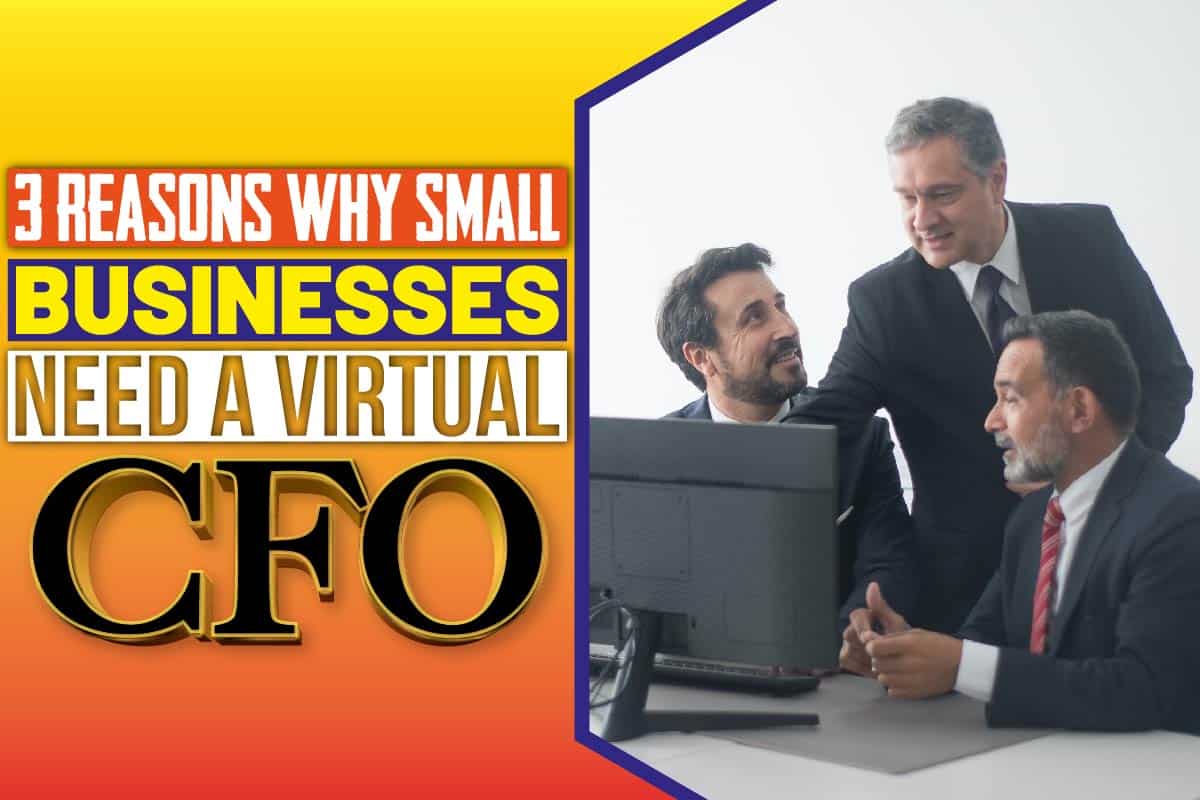With the onset of the Covid pandemic, virtual jobs have been soaring worldwide.
Assistants, graphic designers, content writers, and software engineers are a few examples of people who have called their bedroom their office since early 2021.
As more people find comfort working remotely, the need for intermediaries, like supervisors and managers in the office, has been declining.
It seems that remote working is here to stay, and businesses are enjoying the cost-effectiveness of this new trend.
After all, running a small business can be pretty costly, especially for those entrepreneurs who just stepped foot into their niche industry. So hiring for virtual positions might just do the trick to decrease company costs.
An example of a significant position is that of a Chief Financial Officer (CFO).
But hiring a full-time CFO can put a massive dent in the pocket of small businesses that are starting out.
So why not opt for a virtual CFO instead?
You heard that right! Even CFOs have now become virtual.
And here are three reasons why you should choose one.
1. A Virtual CFO Is Cheaper
A CFO is responsible for budgeting, studying market trends, drawing forecasts, and checking financial reports.
That’s a hefty amount of tasks right there.
As an owner, it would be tough to undertake all those jobs while staying on top of everything else.
Plus, as a small business, you might not have enough funds to cover the costs of hiring a full-time CFO.
That’s why a virtual CFO will be a perfect solution for your rising small business. The virtual CFO focuses on required tasks while working remotely, which means no additional payment is needed for office upkeep.
Moreover, you’ll need someone that can handle advanced accounting tools. A virtual CFO uses these tools to read cash flow statements and make predictions based on profit and loss calculations.
2. Easily Keep Track Of Spending Habits
As you start building your business and hiring more employees, you’re going to need more supplies.
If you have around ten employees, how are you going to keep track of company purchases?
Becky might want to get a new computer she saw online, but it doesn’t mean she should.
A virtual CFO can create a policy plan around expenses whereby cash flow can be monitored. This way, you gain insight into incoming funds and control the amount of money that leaves the business.
3. Manage Company Processes Efficiently
It seems more investors are looking towards providing you with capital, and the number of employees and clients are increasing. That means one thing:
You’re going to need a lot of help with managing your incoming cash flow.
For example, a keen investor who’s excited about your business potential might give you a sum of 50 000$.
Though it’s a large sum, it can quickly vaporize if you don’t know how you’re going to use it.
A regular accountant or bookkeeper might be enough to manage simple accounting tasks like reconciliation, filing, and data entry.
But if you see your company is expanding and you’re finding it hard to keep up with incoming funds, better to hire a virtual CFO.
Similar Posts:
- Why is Virtual Team Building the Future?
- Why Can’t I Cash Out On Uber Eats? (4 Reasons!)
- 3 Compelling Reasons Why Outsourcing SEO is the Best Idea
- Does Usps Offer Virtual Mailboxes? (try This Instead)
- Coinbase To Paypal (can You Withdraw To Paypal + Other Common Faqs)
- Does Chick-fil-a Hire At 14, Or 15? (all You Need To Know)
- Can I Load My Cash App Card At Cvs? (Find Out!)
- Do Albertsons Provide Money Orders? (all You Need To Know)
- Uber Cash: What It Is & How To Use It
- How To Add Money To Cash App Card At Walmart (full Guide)

